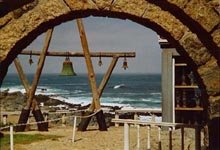as certain dark things are loved...
These days I’m dipping (again and again) my limited brain and heart into the force that is Pablo Neruda. Full Woman, Fleshly Apple, Hot Moon is a volume of selected poems, translated by Stephen Mitchell. Mitchell’s voice is one I’ve learned to trust. His dilemma in the selections was obvious – a mountain range of material. He writes in the Foreword:
Making a selection from this abundance was like standing in some treasure cave from The Thousand and One Nights: coffers and urns overbrimming with jewels lay all around me, but my companion genie said I was only allowed to fill my own pockets. So I made no effort to be representative, to take an equal number of diamonds, pearls, emeralds, sapphires, rings, massive necklaces, filigree bracelets, pre-Columbian animal figurines of pure gold, platinum large-breasted goddesses with ruby nipples. I just took what I love most. When my pockets were full, I left.
Granted, Neruda has his flaws. He wrote endlessly, realizing that many pieces were lacking. But he didn’t concern himself with failed efforts. Surrendering himself to his writing was his sole concern. And that he did.
from “The Word”
The word was born
in the blood,
it grew in the dark body, pulsing,
and took flight with the lips and mouth.
and
Still the atmosphere trembles
with the first word
produced
with panic and groaning.
It emerged
from the darkness
and even now there is no thunder
that thunders with the iron sound
of that word,
the first
word uttered:
perhaps it was just a whisper, a raindrop,
but its cascade still falls and falls.
For me, this poem’s gift is the expectation that is planted in the reader. Where do our words come from? What is the universe that surrounds those words?
Here’s one of my favorites, in its entirety:
"The Night in Isla Negra"
Ancient night and disordered salt
pound the walls of my house:
the shadow is alone, the sky
is now a throb of the ocean,
and sky and shadow explode
with the crash of the boundless conflict:
all night long they struggle
and no one knows the name
of the cruel brightness that keeps opening
like a clumsy fruit:
this is how, on the coast, the harsh dawn
is born from the raging shadow,
gnawed at by the salt in motion,
swept by the weight of the night,
bloodstained in its oceanic crater.

Enough said. There’s great beauty in Neruda, and much to learn.
Give him a read.
Full Woman, Fleshly Apple, Hot Moon: Selected Poems of Pablo Neruda (Harper Collins, 1997), Trans. Stephen Mitchell









1 comment:
ah yes. i do return to his poems, always. m
Post a Comment